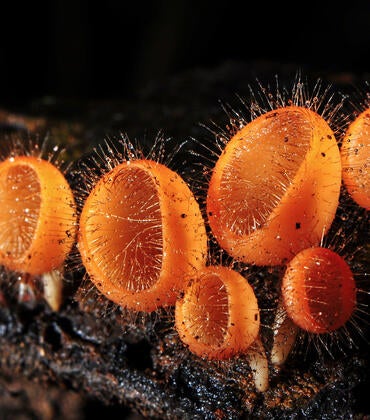
New research from the University of Quebec in Canada has led to recent headlines like this one from the BBC, declaring coffee pods are “better for the planet than filtered brew.”
Such assertions are based on researchers’ findings that pods use less coffee, water, and energy than other brewing methods, so they likely have a lower carbon footprint.
Growing coffee requires intensive irrigation, fertilization and pesticides that emit greenhouse gases. Therefore, products using less coffee are more environmentally friendly. Or are they?
Here to weigh in on the matter is Andrew Gray, who studies the movement of plastic and microplastic pollutants through the environment. He is an assistant professor in UC Riverside’s Department of Environmental Sciences.
Q: Do you agree with the findings of the recent Canadian study that single-use coffee pods might be more environmentally friendly than traditional brewing methods?
Gray: There is a lot of value to calculating the amount of carbon that products add to the atmosphere as they are produced, used, and discarded. It can help inform consumers, regulatory bodies, and industry about the impact these products have. This work is important, but it’s not everything.
My area of expertise has to do with what happens once people have finished using products, and how trash moves through our environment. In addition to CO2, there are a lot of other chemicals produced by plastic products like coffee pods that affect the environment, particularly once they’ve been thrown away.
To truly claim a product is better for the planet, it would be good to see an approach that accounts for the long-term persistence of plastics in our environment, particularly in our water.
Q: The study authors remind consumers to, “be aware of the capsule recycling options in the city where they live to avoid it getting sent to landfill instead of a recycling facility.” Does the possibility of recycling coffee capsules give them additional eco-credibility?
Gray: Fouling with food can be a big issue for plastic. I would wager, at least for the plastic coffee pods, that they fall along the lines of the recycling rates of most plastics, which in our country is very low. Plastic packaging and plastic items directly fouled with food tend to have some of the lowest recycling rates of all plastics.
For items made of plastic that are amenable to recycling, I believe the rate is in the single digits for this country. Maybe 5% gets recycled. Mostly it goes into landfill. Some may get incinerated. And some of it enters the ‘mismanaged’ waste stream that goes back into the environment, and into our surface water systems, rivers, lakes, and streams.
Intact plastic pods start out at a size that falls into the macro plastic trash category, a pollutant in its own right. Then there are impacts as those items start to break down and produce microplastics. There is still a lot to learn about the impacts of these, but we recognize them as potentially toxic pollutants we’re producing more of year after year, and they persist long term.
Q: What are some of the health concerns with microplastics that come from the eventual breakdown of products like coffee pods?
Gray: Some recent work on the toxicity of microplastics includes potential impacts on reproductive health, especially for males. There are concerns about inflammation. Micro and nanoplastic particles can cross organ boundaries and move through cell walls.
These particles get loaded with a wide range of compounds during production and can pick up additional compounds as they move through the environment, like heavy metals or other contaminants like PFOS, which are possible carcinogens and endocrine system disruptors.
Q: What is the ultimate takeaway, for you, from a study like this one?
Gray: Again, there is plenty of utility in going through these kinds of exercises, but it’s important to keep the bigger picture in mind. Saying one consumer product is great for the environment and another is terrible puts a lot of emphasis on consumer behavior.
Certainly, people making more educated choices regarding the environment is important. But these choices are made in an economic system where products are given to us. It’s not only individuals that need to change, but industries as well. There is a need for them to be directly regulated. More focus should be placed on producers rather than on shaming consumers.
(Cover image: SergeyKlopotov/iStock/Getty)




